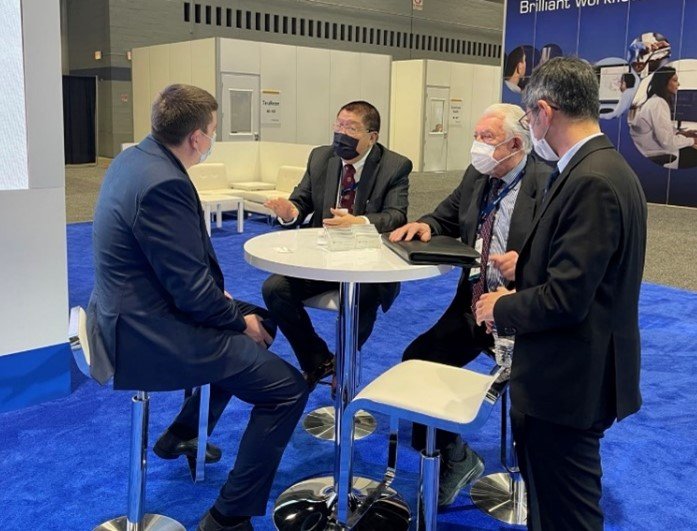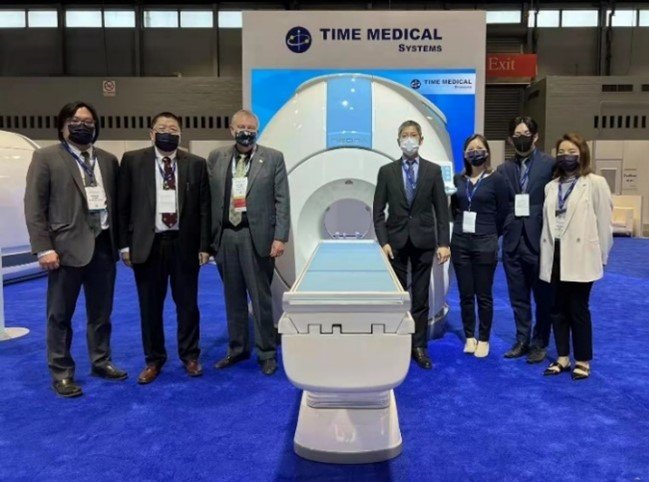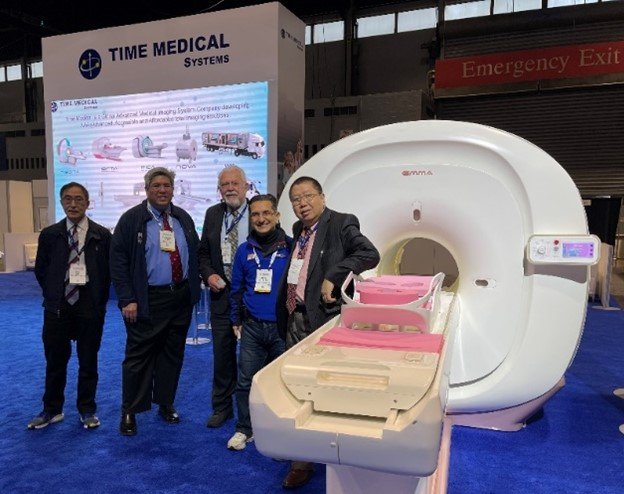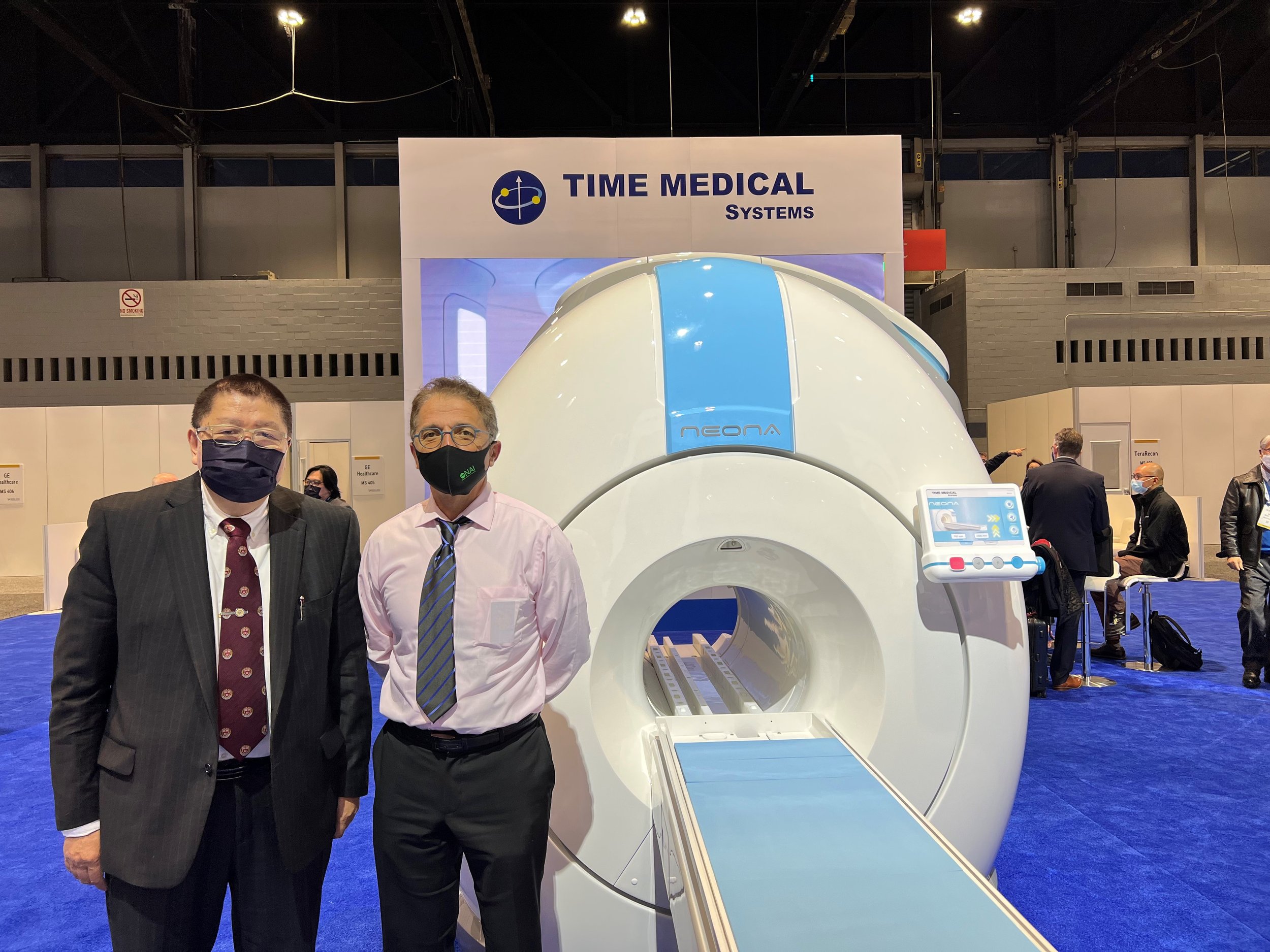Time Medical at RSNA 2021
/Time Medical participated in the 107th North American Radiology Annual Conference RSNA, the world's largest and oldest exhibition in the medical imaging industry. Affected by the global pandemic, the exhibition in 2020 was cancelled. There are 20,000 radiologists and more than 500 companies participated in 2021 RSNA. Time Medical, along with industrial leaders such as GE, Siemens, Philips, and others have participated in the exhibition. Time Medical's booth was placed next to GE Healthcare, which exhibited three innovative products of neonatal MRI, breast MRI and 1.5T whole body superconducting MRI.
During the RSNA exhibition, Time Medical team hosted numerous customers and distributors from all over the world including the United States, the United Kingdom, Germany, Sweden, Ukraine, Canada, South Korea, India, Egypt, Jordan, Turkey, Israel, Mexico, Argentina, Colombia, Peru, Ecuador and other countries. Many examined Time Medical’s innovative products and expressed their interests for distribution. Time Medical team has made sales leads of over 20 MRI systems throughout the exhibition (RSNA regulations do not allow customers and vendors to sign purchase agreements or MOU during the exhibition).
Time Medical has initiated several clinical research collaborations with leading medical schools in the United States. During the exhibition, radiologists from Harvard Medical School, Stanford Medical School, Memorial Sloan Kettering Cancer Center (MSKCC) in New York, Columbia University, Cornell University School of Medicine, University of California Medical Centers, etc. visited Time Medical’s booth to discuss potential collaboration projects such as the 7-14T ultra-high field MR, sodium MRI imaging, neonatal MRI, breast MR screening and other clinical scientific research and diagnostic applications.
Dr. Comstock, a leading breast imaging expert of MSKCC, discussed potential cooperation with Time Medical team in breast cancer MRI screening. Dr. Comstock is the promoter of rapid MRI breast cancer screening in the United States.
Professor Boada from Stanford Medical School discussed cooperation with Time Medical team in the diagnosis of cancer cells with MR sodium imaging. Professor Boada is a well-known expert in sodium imaging of brain tumour.
Time Medical advisor and former CTO of GE Healthcare, Michael Harsh came to the Time Medical’s booth to oversee innovative products. He highly praised the company's high-temperature superconducting (HTS) magnets and radio frequency (RF) technology, as well as its unique products such as neonatal MRI. Professor Hennig, a leading expert in medical imaging of European, also came to Time Medical’s booth to view the innovative products. Professor Kateb, Chairman of the International Association for Brain Imaging and Prevention and the Brain Imaging Foundation, visited Time Medical’s booth.
Former GE Healthcare CTO, Michael Harsh came to Time Medical’s booth
Professor Hennig visited Time Medical’s booth
Professor Kateb (second right), Chairman of the International Association for Brain Imaging and Prevention
Professor Jalali (right) from the University of California Los Angles, visited Time Medical’s booth
Senior management team of the American company, MardaMed visited Time Medical’s booth and discussed potential cooperation
The CEO of the Indian Medical Equipment Park AMTZ visit Time Medical’s exhibition
The senior management team of an Argentine distributor, GEMED examined Time Medical’s products. GEMED has arranged several customers from Latin America to view Time Medical’s products and has led to 5 MRI orders
During the exhibition, Time Medical’s management team held face-to-face meetings with the global MRI executives of GE, Siemens, and Philips. They discussed the collaborations in the global distribution of Time Medical’s neonatal MR, HTS magnets, and the development of next-generation ultra-high field MR, as well as cooperation in the Asian market. The executives of the three major companies all visited Time Medical's booth to examine the first superconducting neonatal MR and other innovative products.
On December 1, Professor Ma and Dr. Yuri Wedmid were invited to participate in the CIBR committee meeting. The meeting was attended by the committee members from 8 companies including GE, Siemens, Philips, Canon and Time Medical, as well as leading radiologists of more than 20 top hospitals and institutes, including National Institutes of Health (NIH) Institute of Biomedical Imaging and Bioengineering, MSKCC, Harvard Medical School, Anderson Cancer Center, Stanford School of Medicine, University of California Medical Centers, Cornell School of Medicine, and University of Pennsylvania School of Medicine.
Professor Ma pointed out the rapid rise of online medical diagnosis services during the pandemic and in the post-pandemic era. Online consultations have increased by 38 times in the past 18 months, while routine imaging examinations such as breast cancer screening have decreased by 80%. How to provide imaging service in the community (Imaging in Community) has become a challenge for the imaging industry. He introduced the initiative of Time Medical and Harvard School of Public Health to provide imaging screening services for lung infection and breast cancer in the community. It has triggered heated discussions among the participants, the CIBR has decided to set up a working group to guild community diagnosis-related regulations and data standardization.
Yuri (Left), Renee, Executive Director of the Coalition for Imaging & Bioengineering Research (CIBR) (Middle) and Professor Ma (Right)
Group Photo of Time Medical team at RSNA
















